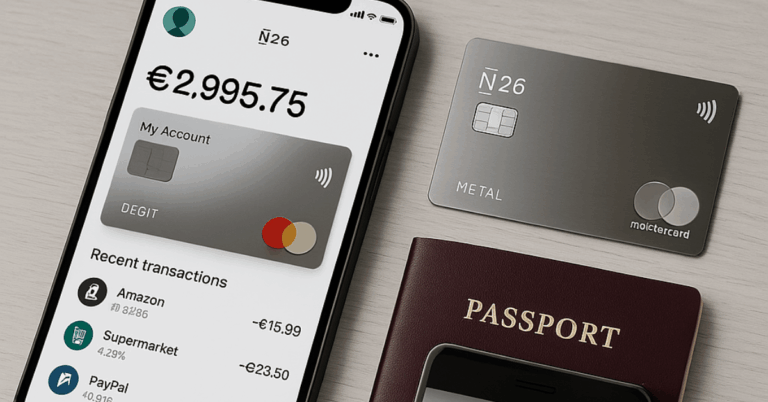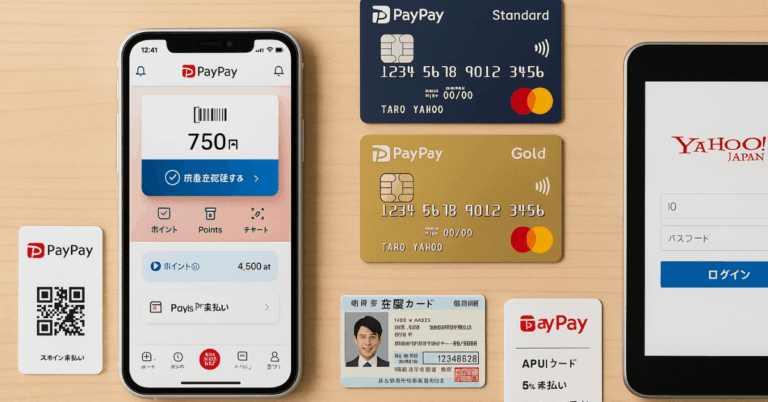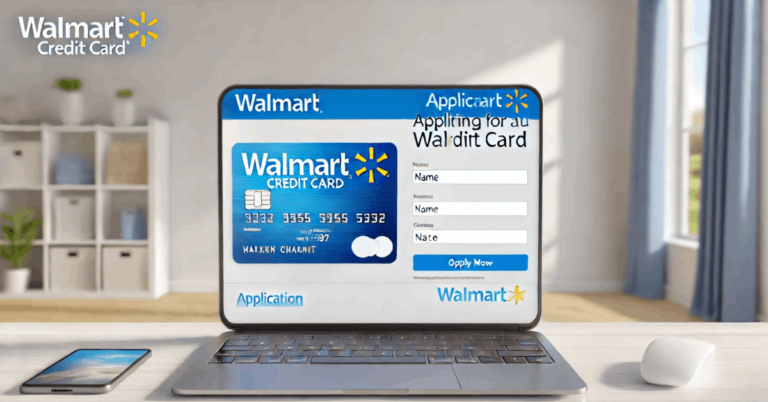Discover the top ten electronic banking advancements designed to simplify your financial life.
From mobile banking apps to cutting-edge security measures, these innovations promise increased efficiency and convenience in managing your money.
Join us as we explore the latest advancements shaping the future of electronic banking.
Mobile Banking Apps
Mobile banking apps have revolutionized finance management, offering unparalleled convenience. Here’s a look at their benefits:
- Access Anytime, Anywhere: Check balances, transfer funds, and pay bills effortlessly.
- Advanced Security: Biometric authentication and encryption keep your data safe.
- Mobile Check Deposit: Deposit checks via photo, eliminating bank visits.
- Bill Pay: Schedule and pay bills swiftly, reducing late payments.
- Budgeting Tools: Track spending, set goals, and manage budgets easily.
- Integration with Other Services: Connect with financial apps seamlessly.
- Personalized Insights: Receive tailored recommendations based on habits.
- Transfer Options: Move funds between accounts and send money instantly.
- Real-time Notifications: Stay updated on transactions and balances.
- Customer Support: Access assistance directly through the app.
Contactless Payments
Contactless payments offer convenience and security, transforming transactions. Here’s why they’re changing the game:
- Swift Transactions: Reduce checkout times significantly with contactless payments.
- Robust Security: Utilize encryption technology for enhanced protection.
- Easy Convenience: Tap to pay, eliminating swiping or inserting cards.
- Hygienic Option: Minimize physical contact during transactions for safety.
- Wide Acceptance: Use contactless payments at various merchants and venues.
- Higher Limits: Enjoy increased purchase limits without PIN or signature.
- Mobile Wallet Integration: Seamlessly use digital wallets for added convenience.

Biometric Authentication
Biometric authentication has revolutionized security measures, offering personalized and highly secure access.
Here’s why it’s reshaping the landscape of authentication:
- Personalized Security: Biometric authentication utilizes unique physical traits like fingerprints or facial features to verify identity.
- Enhanced Protection: Biometric data is difficult to replicate or forge, providing a higher security level than traditional methods.
- Convenience: Users can access their accounts or devices with a simple scan or touch, eliminating the need to remember complex passwords.
- Rapid Verification: Biometric authentication processes are quick and seamless, reducing the time required for identity verification.
- Multi-Factor Authentication: Biometric authentication can be combined with other factors, such as passwords or tokens, for an added layer of security.
- Continuous Advancements: Ongoing developments in biometric technology make authentication even more accurate and reliable.
- Wide Adoption: Biometric authentication is widespread in banking, healthcare, and government sectors.
Artificial Intelligence in Banking
Artificial Intelligence (AI) revolutionizes banking, enhancing efficiency and customer experiences. Here’s a breakdown of its impact:
- Personalized Experiences: Analyzing customer data for tailored financial advice and product recommendations.
- Fraud Detection: Swift identification of suspicious activities to prevent real-time fraudulent transactions.
- Customer Service: Instant support and assistance through AI-powered chatbots for enhanced satisfaction.
- Risk Assessment: Efficient credit risk and loan application evaluation to streamline the lending process.
- Predictive Analytics: Anticipation of market trends and customer behaviors for informed decision-making.
- Automation: Task streamlining, including data entry, to allocate more time to high-value work.
- Regulatory Compliance: Monitoring transactions and identifying compliance issues to ensure regulation adherence.
Blockchain Technology
Blockchain technology, known for its decentralized and transparent nature, is reshaping banking systems. Here’s a breakdown of its impact:
- Decentralization: Transactions are recorded on a distributed ledger, eliminating the need for intermediaries and reducing costs.
- Enhanced Security: Cryptographic techniques ensure data integrity, minimizing fraud and cyberattack risks.
- Faster Transactions: Blockchain allows rapid transaction settlement, cutting processing times and enhancing liquidity.
- Improved Transparency: All participants in the network have access to the same information, promoting trust and accountability.
- Smart Contracts: Smart contracts enforce terms automatically, boosting efficiency by reducing manual intervention.
- Cross-Border Payments: Blockchain enables swift, low-cost cross-border transactions by cutting intermediaries and currency fees.
- Regulatory Compliance: Blockchain simplifies compliance, easing administrative burdens for banks.
Personal Financial Management Tools
Personal financial management tools empower individuals to take control of their finances effectively. Here’s a breakdown of their key features:
- Budgeting: Track income and expenses, set spending limits, and allocate funds to different categories to manage finances efficiently.
- Goal-Setting: Set short-term and long-term financial goals, such as saving for a vacation or retirement, and track progress over time.
- Expense Tracking: Automatically categorize transactions, monitor spending patterns, and identify areas where expenses can be reduced.
- Bill Reminders: Receive notifications for upcoming bills and due dates, ensuring timely payments and avoiding late fees.
- Savings Tools: Utilize features like automatic transfers and round-up purchases to savings accounts to increase savings effortlessly.
- Debt Management: Manage debt repayment plans to improve financial health by tracking loans and credit card balances.
- Investment Tracking: Track investment portfolios, assess performance, and analyze returns for informed decisions.

Instant Payments
Instant payments revolutionize transactions, offering swift fund transfers. Here’s a look at their benefits:
- Immediate Transactions: Funds transfer instantly, eliminating waiting periods.
- Enhanced Convenience: Payments can be made and received 24/7.
- Improved Cash Flow: Businesses access funds instantly, optimizing operations.
- Reduced Settlement Risk: Minimizing payment delays enhances reliability.
- Lower Transaction Costs: Streamlined processes lead to cost savings.
- Cross-Border Transactions: Facilitating fast cross-border transfers.
- Digital Wallet Integration: Seamless transactions with digital wallets.
Open Banking
Open banking facilitates secure data sharing between customers and third-party providers, enabling tailored financial products.
This fosters competition and innovation in the financial sector.
Open banking revolutionizes finance, fostering innovation and competition. Here’s a breakdown:
- Data Sharing: Securely share financial data for personalized services.
- Enhanced Transparency: Gain visibility into transactions and information.
- Account Aggregation: Centralize bank accounts for easy management.
- Innovative Products: Drive development of tailored financial services.
- Access to Credit: Utilize alternative data for improved credit access.
- Increased Competition: Foster innovation among financial institutions.
- Regulatory Oversight: Ensure data security and consumer protection.
Cryptocurrency and Digital Wallets
Bitcoin and Ethereum are cryptocurrencies that use blockchain for secure transactions.
Bitcoin introduced decentralized digital currency, while Ethereum added smart contracts. They’re widely adopted, reshaping finance.
Cryptocurrency and digital wallets have transformed money management. Here’s their impact:
- Decentralized Currency: Operates independently, offering financial sovereignty.
- Secure Transactions: Encrypted and verified for heightened security.
- Financial Inclusion: Enables participation in the global economy.
- Borderless Transactions: Conducted seamlessly across borders.
- Investment Opportunities: Offers new investment avenues with potential returns.
- Digital Wallets: Convenient and secure storage for cryptocurrencies.
- Adoption and Regulation: Governments develop frameworks to govern use.

Enhanced Fraud Detection and Security Measures
Enhanced fraud detection and security measures are vital for safeguarding financial transactions. Here’s how they bolster security:
- Advanced Algorithms: Detect suspicious activities in real-time.
- Biometric Authentication: Verify user identities using fingerprints or facial features.
- Multi-Factor Authentication: Combine authentication factors for added protection.
- Real-time Monitoring: Identify and respond to security threats promptly.
- Encryption Technology: Protect sensitive information from unauthorized access.
- Machine Learning: Adapt to identify new fraud patterns accurately.
- Collaboration: Share information to combat fraud effectively.
Summing It Up
In conclusion, the electronic banking advancements discussed represent a transformative shift, offering unparalleled convenience and security.
These innovations, from mobile apps to blockchain, empower individuals to easily manage finances, making banking tasks more straightforward and accessible.
Also Read: Mengapa Anda Perlu Memperdulikan Pasaran Pertukaran Asing?
Read in another language
- Español: 10 Avances en la Banca Electrónica Que Facilitan Tu Vida
- Bahasa Indonesia: 10 Kemajuan Perbankan Elektronik yang Membuat Hidup Anda Lebih Mudah
- Bahasa Melayu: 10 Kemajuan Perbankan Elektronik yang Memudahkan Hidup Anda
- Čeština: 10 Elektronických bankovních inovací, které usnadňují váš život
- Dansk: 10 Elektroniske Bankfordele, Der Gør Dit Liv Nemmere
- Deutsch: 10 Elektronische Bankdienstleistungen, die Ihr Leben erleichtern
- Eesti: 10 elektroonilist panganduse edusammu, mis muudavad sinu elu lihtsamaks
- Français: 10 Avancées dans la Banque Électronique Qui Facilitent Votre Vie
- Hrvatski: 10 elektroničkih bankarskih inovacija koje olakšavaju vaš život
- Italiano: 10 Avanzamenti nell’Internet Banking Che Rendono la Tua Vita Più Facile
- Latviešu: 10 Elektronisko banku uzlabojumi, kas atvieglo Jūsu dzīvi
- Lietuvių: 10 Elektroninių bankinių paslaugų naujovių, kurios padaro jūsų gyvenimą lengvesnį
- Magyar: 10 Elektronikus Banki Fejlesztés, Amelyek Megkönnyítik Az Életedet
- Nederlands: 10 Elektronische Bankieren Vooruitgangen Die Je Leven Gemakkelijker Maken
- Norsk: 10 Elektroniske Banktjenester som Gjør Livet Ditt Enklere
- Polski: 10 Elektronicznych Udoskonaleń Bankowości, Które Ułatwią Ci Życie
- Português: 10 Avanços na Banca Eletrônica Que Facilitam Sua Vida
- Română: 10 Avansuri în serviciile bancare electronice care îți fac viața mai ușoară
- Slovenčina: 10 Elektronické bankovní inovácie, ktoré zjednodušujú váš život
- Suomi: 10 sähköisen pankkitoiminnan edistysaskelta, jotka helpottavat elämääsi
- Svenska: 10 Elektroniska banktjänster som gör ditt liv enklare
- Tiếng Việt: 10 Cải Tiến Ngân Hàng Điện Tử Giúp Cuộc Sống Của Bạn Dễ dàng Hơn
- Türkçe: Hayatını Kolaylaştıran 10 Elektronik Bankacılık İlerlemesi
- Ελληνικά: 10 Ηλεκτρονικές Τραπεζικές Καινοτομίες που Διευκολύνουν την Καθημερινή Σας Ζωή
- български: 10 Електронни банкови развития, които направят живота ви по-лесен
- Русский: 10 новинок в области электронного банкинга, которые упрощают вашу жизнь
- српски језик: 10 Elektronskih bankarskih unapređenja koja olakšavaju vaš život
- עברית: 10 שיפורים בבנקאות אלקטרונית שיעשו את חייך קלים יותר
- اردو: آپ کی زندگی کو آسان بنانے والے 10 الیکٹرانک بینکنگ کی ترقیاں
- العربية: 10 تطورات في الخدمات المصرفية الإلكترونية تجعل حياتك أسهل
- فارسی: 10 پیشرفت الکترونیکی در بانکداری که زندگی شما را آسانتر میکند
- हिन्दी: जो आपके जीवन को आसान बना देते हैं, उन 10 इलेक्ट्रॉनिक बैंकिंग उन्नतियाँ
- ภาษาไทย: 10 ความก้าวหน้าในการทำธนาคารอิเล็กทรอนิกส์ที่ทำให้ชีวิตของคุณง่ายขึ้น
- 日本語: 生活をより便利にする10の電子バンキングの進歩
- 简体中文: 让你的生活更轻松的 10 项电子银行进展
- 繁體中文: 讓生活更輕鬆的10項電子銀行進步
- 한국어: 당신의 삶을 더 편리하게 만드는 10가지 전자 은행 진보











